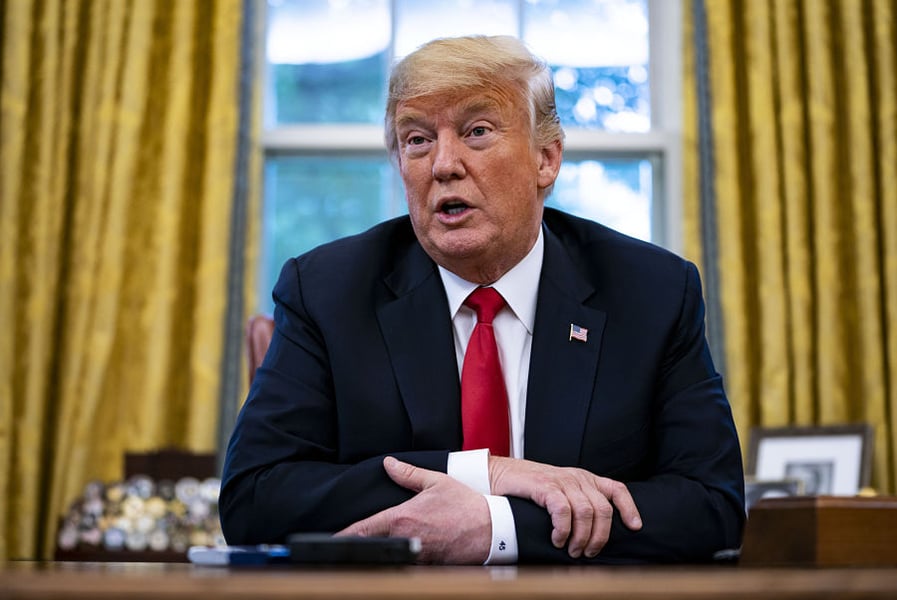Investment advisers support President Donald J. Trump's effort to allow people to keep money in their retirement accounts longer.
This afternoon at an event in Charlotte, N.C., Mr. Trump will
sign an executive order directing the Treasury Department to review regulations that require savers to start taking money out of 401k and individual retirement accounts at the age of 70½. The agency will determine whether the age limit should be raised to better match life expectancy.
Another part of the retirement-security executive order directs Treasury and the Labor Department to issue regulations that would make it easier for small companies to offer retirement programs for their workers. The revised rules would enable more companies to participate in multiple employer plans, which reduce costs and administrative burdens.
Many advisers were receptive to adjusting RMD requirements.
"A lot of clients don't want to take the money out; they're forced to take it out," said Edward Snyder, president and co-founder of Oaktree Financial Advisors. "Giving them the flexibility to leave the money in and grow would be welcome to them."
Many of Jim Oliver's clients work until they're well into their 70s or 80s. When they have to take RMDs, they then have to mitigate the tax effects of the move.
"They would prefer to leave it in there and use it later for the purpose it was meant for, which is to retire," said Mr. Oliver, a tax partner at Calvetti Ferguson.
Allowing retirement accounts to continue to grow would provide more of a cushion for medical bills and other costs that rise later in life, said Ken Nuttall, director of financial planning at BlackDiamond Wealth Management.
"Some people when they get older do need more money," Mr. Nuttall said.
High-net-worth individuals who don't depend on distributions from their retirement plans would especially benefit from pushing up the age ceiling, said Monica Dwyer, vice president of Harvest Financial Advisors.
"My clients are going to love it," Ms. Dwyer said. "They're potentially going to be able to pass more money along to their heirs."
One adviser has qualms about changing the required distributions because it will not help working-class Americans.
"I'd like to see a closer examination of who benefits as well as the impact of lost tax revenue," said Douglas Boneparth, president of Bone Fide Wealth. "I can't help but wonder if this isn't just another boost for the 1%."
Ms. Dwyer also pointed out the possible drawback of a decline in government revenue.
"The big concern is that it is going to increase our debt," she said.
The regulatory changes designed to help small companies sponsor retirement programs also were endorsed by advisers.
Dennis Nolte, vice president at Seacoast Bank, works with about 30 firms that offer their own 401k plans.
"It would be fantastic for small business owners," Mr. Nolte said. "It would be cheap, efficient and easier to administer."
Treasury and Labor could take months to review regulatory changes, and public comments would be taken before any changes were approved, according to Bloomberg News.
On a parallel track,
several retirement-policy bills with similar goals as Mr. Trump's executive order are making their way through Capitol Hill.
"To address retirement security in a comprehensive manner, we still need Congress to move forward," said Chris Spence, senior director for federal government relations at TIAA.







